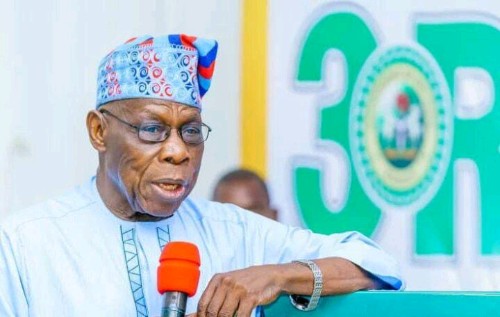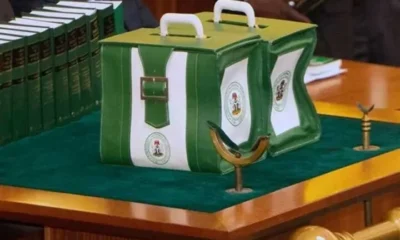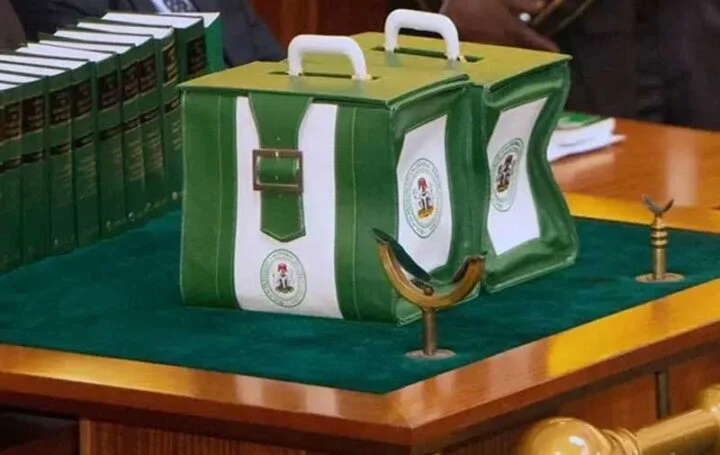Former President Olusegun Obasanjo says Nigeria keeps failing as a country because everyone is impatient with democracy.
Obasanjo said the country is not making progress despite being ruled by leaders from various intellectual and professional fields.
He said the leaders need to start making efforts to correct past errors rather than acting like Nigeria is a new country.
Obasanjo spoke on Thursday while delivering a keynote address on ‘Deepening democratic culture and institutions for sustainable development and security in Nigeria’ in Port Harcourt, Rivers capital.
The former president said a nation that fails to “engage in conversations, self-analysis, self-criticism, and regular reading and interaction cannot make meaningful and sustainable progress”.
“It is probably best to state right from the beginning that no two democracies are exactly alike. Democratic practice and institutions are shaped by the specificity of history, socio-political struggles, culture, nature of production and exchange, orientation, social balances and the character of the government and ruling elites,” he said.
“However, citizens that live in democracies share common perspectives, expectations and commitments to the basic tenets of democratic practice. And they may turn out to be beneficiaries or victims depending on the course of the process and practice of democracy.
“Therefore, in this our brief conversation today, my goal is to redirect our minds to where we missed the bus. If we are patient, humble, reflective, and willing, another bus is just around the corner: are we ready to be active passengers?
“Our democracy has gone through twists, dives and turns since political independence and we are all living witnesses to our achievements and failures. The best of our history has been the sustenance of democracy since the transfer of power to an elected government in 1999.
“There is reason to appreciate this part of our history because we have thus far kept the military out of the full and formal control and domination of political power.
“However, there may be reasons to doubt how much lessons the leaders and followers have drawn from our past and how far they are willing to go to deepen, widen and strengthen democracy and democratic practice.
“We fail to understand that democracy is not a one shot game. It is evolutionary and it takes time to ground the practice. It is not for quick change and indeed, if we play by the rules, we would all realise that regimes or governments can change but the tenets remain constant.”
‘WE MUST BUILD POSITIVE FOUNDATION COLLECTIVELY’
The former president said it is important for leaders to rebuild their commitment to democracy, adding that they can still adopt lessons from the few good democratic practices of past administrations.
“Our failure on several, if not all fronts, is because we are impatient with democracy and democratic practice. That impatience takes an element of greed, selfishness and lack of patriotism with it,” he added.
“Yet, if you look at our pre-colonial history, you will find countless strong practices that were genuinely democratic including checks and balances to prevent dictatorship and bad governance in whatever form.
“When a new King/Queen is installed, he/she does not proceed to behave as if the community is new. He/she does not immediately proceed to build a new palace and destroy the legacies of the predecessor.
“Rather, the focus is to correct past errors, build on inherited legacies, cultivate support from all quarters, enhance inclusion and respect existing governance and leadership structures and institutions.”
‘LEADERS CAMPAIGN AS IF THEY PLAN TO REINVENT NIGERIA’
Obasanjo said in Nigeria, each new government behaves as if the country is a “newly found”, noting that during campaigns, “some leaders sound as if they plan to reinvent Nigeria and create new Nigerians overnight”.
“That is because they miss the aspect of democracy that emphasizes continuity, stability and predictability. One regime can lay the foundation but it requires many regimes to continue to build positively and constructively on the foundation. It is largely because we overlook and often disregard the basic principles of democracy,” he said.
“Everyone in this room, whether we admit it or not, is an expert in Nigerian politics. We all have opinions and we have prescriptions for all the problems of Nigeria. Yet, the country is not making progress. Most of us are experts in what we know little or nothing about and ignoramus in what is our duty and responsibility.
“We have tried all sorts of regimes, ideologies, planning strategies and personalities in power: the so-called new breed did not show that they were different. Equally, states run by professors, retired military officers and other professionals including teachers did not experience visible and substantial improvements. True, there have been some outstanding leaders at various levels of power but no tree has ever made a forest; the good ones are few and far in between and did not form critical mass.
“If after six decades of political independence, our leaders are not showing clear capacities to provide a transformative leadership that unites Nigerians and contains ethnic, religious, regional and clannish, selfish, even class proclivities, then, there is a problem.
“In fact, it is possible to declare that the ways in which we have practised our democracy have deepened contradictions, negative coalitions, distrust, disloyalty and unpatriotic tendencies within and between communities and constituencies all over the country.
“Again, this means that there is a deep structural and philosophical problem that we must deal with. We have tended so far to pursue the symptoms of the contradiction rather than focus on the causes and the disease remains stubbornly endemic.”
Obasanjo added that unless Nigeria generates the courage and commitment “to change course and do things better and differently, we may be heading for more trouble ahead”.

 BIG STORY2 days ago
BIG STORY2 days ago
 BIG STORY3 days ago
BIG STORY3 days ago
 BIG STORY4 days ago
BIG STORY4 days ago
 BIG STORY4 days ago
BIG STORY4 days ago
 BIG STORY2 days ago
BIG STORY2 days ago
 BIG STORY3 days ago
BIG STORY3 days ago
 BIG STORY2 days ago
BIG STORY2 days ago
 BIG STORY14 hours ago
BIG STORY14 hours ago






















